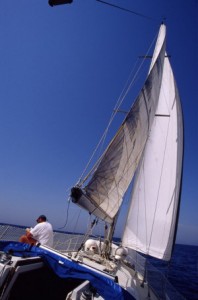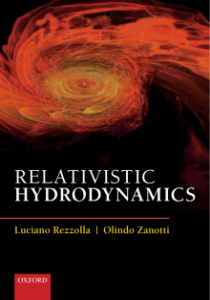 I am a relativistic astrophysicist, i.e., a physicist who uses Einstein’s theory of general relativity to describe and explain high-energy astronomical observations of black holes and neutron stars. To do this I combine analytical perturbative tools with numerical nonlinear simulations in which I solve the Einstein equations together with those of relativistic hydrodynamics or magnetohydrodynamics. I do this in the endless process of comparing theoretical results and predictions with astronomical observations. I am presently the Chair of Theoretical (Relativistic) Astrophysics at the Institute for Theoretical Physics (ITP) of the Goethe University of Frankfurt, Germany. I am also Senior Fellow at the Frankfurt Institute of Advanced Studies (FIAS).
I am a relativistic astrophysicist, i.e., a physicist who uses Einstein’s theory of general relativity to describe and explain high-energy astronomical observations of black holes and neutron stars. To do this I combine analytical perturbative tools with numerical nonlinear simulations in which I solve the Einstein equations together with those of relativistic hydrodynamics or magnetohydrodynamics. I do this in the endless process of comparing theoretical results and predictions with astronomical observations. I am presently the Chair of Theoretical (Relativistic) Astrophysics at the Institute for Theoretical Physics (ITP) of the Goethe University of Frankfurt, Germany. I am also Senior Fellow at the Frankfurt Institute of Advanced Studies (FIAS).
 Relativistic hydrodynamics is one of my main interests and an incredibly successful framework to describe the dynamics of matter from scales as small as those of colliding elementary particles, up to the largest scales in the universe.
Relativistic hydrodynamics is one of my main interests and an incredibly successful framework to describe the dynamics of matter from scales as small as those of colliding elementary particles, up to the largest scales in the universe.
“Relativistic Hydrodynamics” is also the title of a book I have recently written with Olindo Zanotti for Oxford University Press. It containts a good part of what you may want to learn about relativistic hydrodynamics, from the mathematical foundations, to the numerical methods and the astrophysical applications. Reviews and more information can be found by clicking on the cover.
Starting from October 2014 a team composed by Heino Falcke, Radboud University Nijmegen, Michael Kramer, Max-Planck-Institut für Radioastronomie, and myself has been awarded a Synergy Grant from the European Research Council (ERC). These grants represent the most prestigious and substantial form of funding in Europe and for the first time they have been awarded for an astrophysics proposal. More information can be found here.
Since November 2013 I am the Chair of (New)CompStar, a COST Action that brings together the leading experts in astrophysics, nuclear physics and gravitational physics to address this fascinating but challenging research area through an interdisciplinary approach.In addition to an innovative and well-defined research  agenda, the network will provide a dedicated training program for a new generation of scientists with wide-ranging expertise and multiple skills oriented also towards knowledge transfer and innovation. More information can be found on the official webpage of NewCompStar
agenda, the network will provide a dedicated training program for a new generation of scientists with wide-ranging expertise and multiple skills oriented also towards knowledge transfer and innovation. More information can be found on the official webpage of NewCompStar

